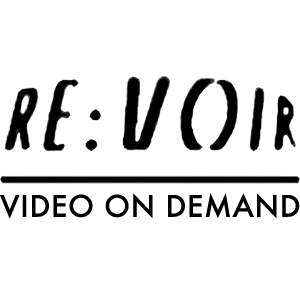Buharov Brothers - Slow Mirror
1. Igor & Ivan Buharov - Slow Mirror (2007) 1:24:36mins
2. Igor & Ivan Buharov - Mothmilk (2009) 08:37mins
3. Igor & Ivan Buharov - Oneheadword Protection (2006) 06:47mins
4. Igor & Ivan Buharov - Hotel Tubu (2002) 04:59mins
The anarchic, fractured and extremely surreal films by Ivan and Igor Buharov (Kornél Szilágyi and Nándor Hevesi) might seem like a perfect fit for this “outsider” paradigm. Darkly playful hallucinations that share the aura of having been discovered in a granny’s attic like a book of now troubling childhood drawings, they reveal in precise terms a world perhaps subconsciously suspected but hitherto indescribable. They have in common an improvised quality and a sense of the homemade.
This not only stems from their beautifully rough-hewn visual textures but often from the people, objects and spaces that appear before the camera. The casts are composed of extraordinary ordinary people rather than film star types: lived-in faces bringing their own stories to the films. The props, which sometimes conspicuously reappear in different films, can likewise seem to have a real-world existence of their own carried over into the picture.
This helps lend the films the weird intimacy of children’s games, in which familiar people and places are made alien and the weirdly alien becomes immanent to the everyday. The feverish and disorienting experience of watching a Buharov film was probably best described in the 2008 Offscreen Film Festival catalogue as “getting lost in someone else’s dream". Maximilian Le Cain
--
Les images anarchiques, fracturées et extrêmement surréalistes d’Ivan et Igor Buharov (Kornél Szilágyi et Nándor Hevesi) semblent parfaitement répondre au paradigme de 'marginalité'. Hallucinations à l’espièglerie mélancolique, auréolées du charme de ces objets oubliés qu’on retrouve dans le grenier d’une grand-mère (comme un livre de dessins d’enfants, aujourd’hui troublants), ils révèlent en termes précis un monde peut-être inconsciemment soupçonné mais jusqu’alors indescriptible. Ils ont en commun quelque chose d’improvisé et d’artisanal.
Cela ne vient pas seulement du caractère mal dégrossi de leurs superbes textures visuelles, mais souvent aussi des personnes, des objets et des espaces qui apparaissent devant la caméra. Plutôt que des profils de stars, leur casting se compose d’extraordinaires gens ordinaires, visages habités qui apportent aux films leur propre histoire. Les accessoires, qui parfois réapparaissent ostensiblement dans différents films, semblent eux aussi appartenir au monde réel, et sont dotés d’une existence propre qui est reversée dans les films.
Cela contribue à donner à ce cinéma la curieuse intimité des jeux d’enfants, dans lesquels les gens et les lieux ordinaires deviennent étranges et l’étrange devient inhérent au quotidien. L’expérience fébrile et troublante consistant à regarder un film des Buharov n’a sans doute jamais été mieux décrite que dans le catalogue de l’édition 2008 du festival de film Offscreen : « Se perdre dans le rêve d’un autre ». Maximilian Le Cain



